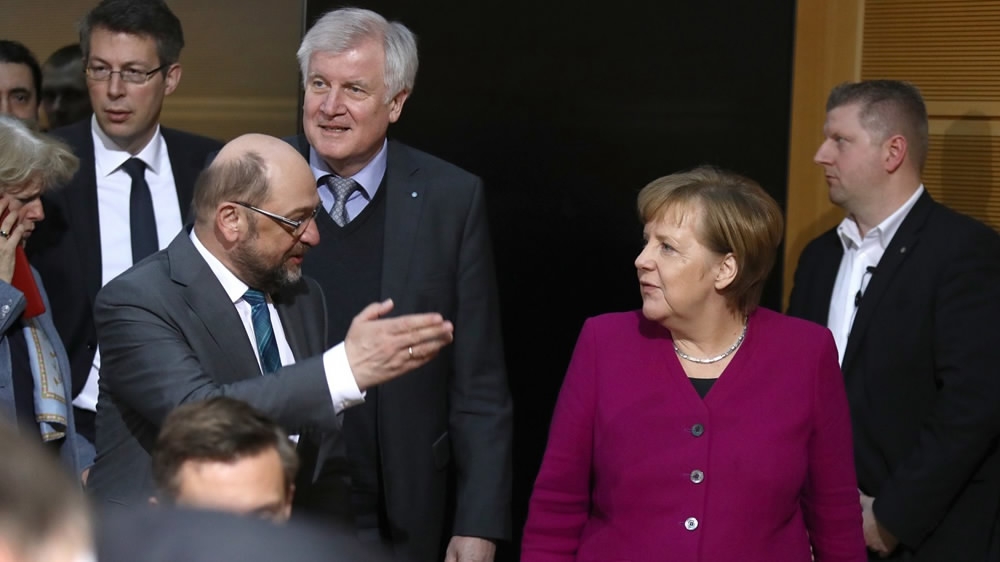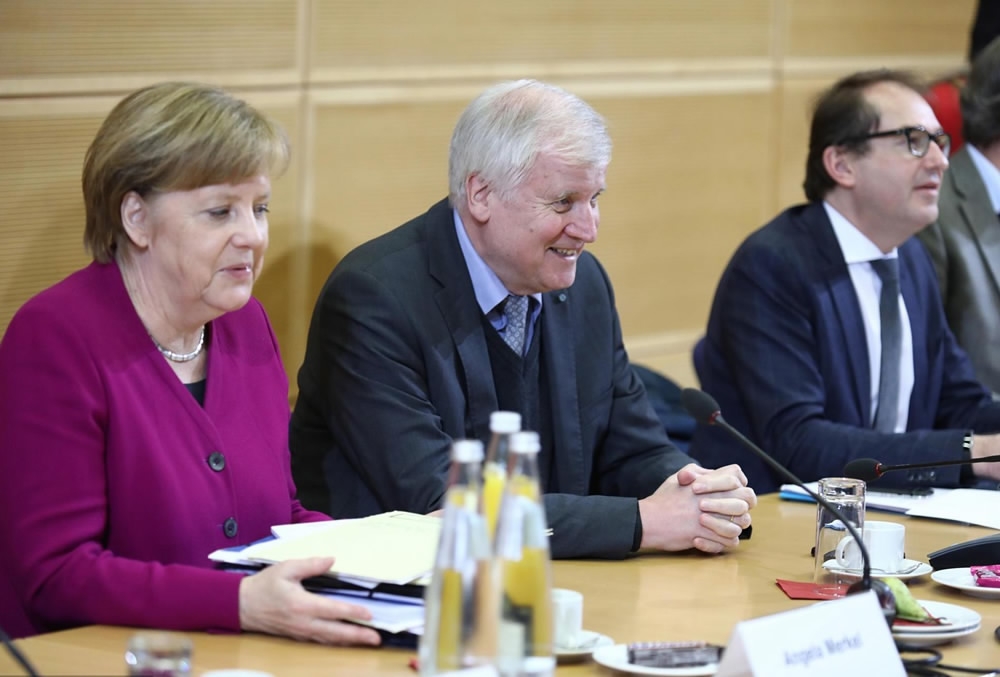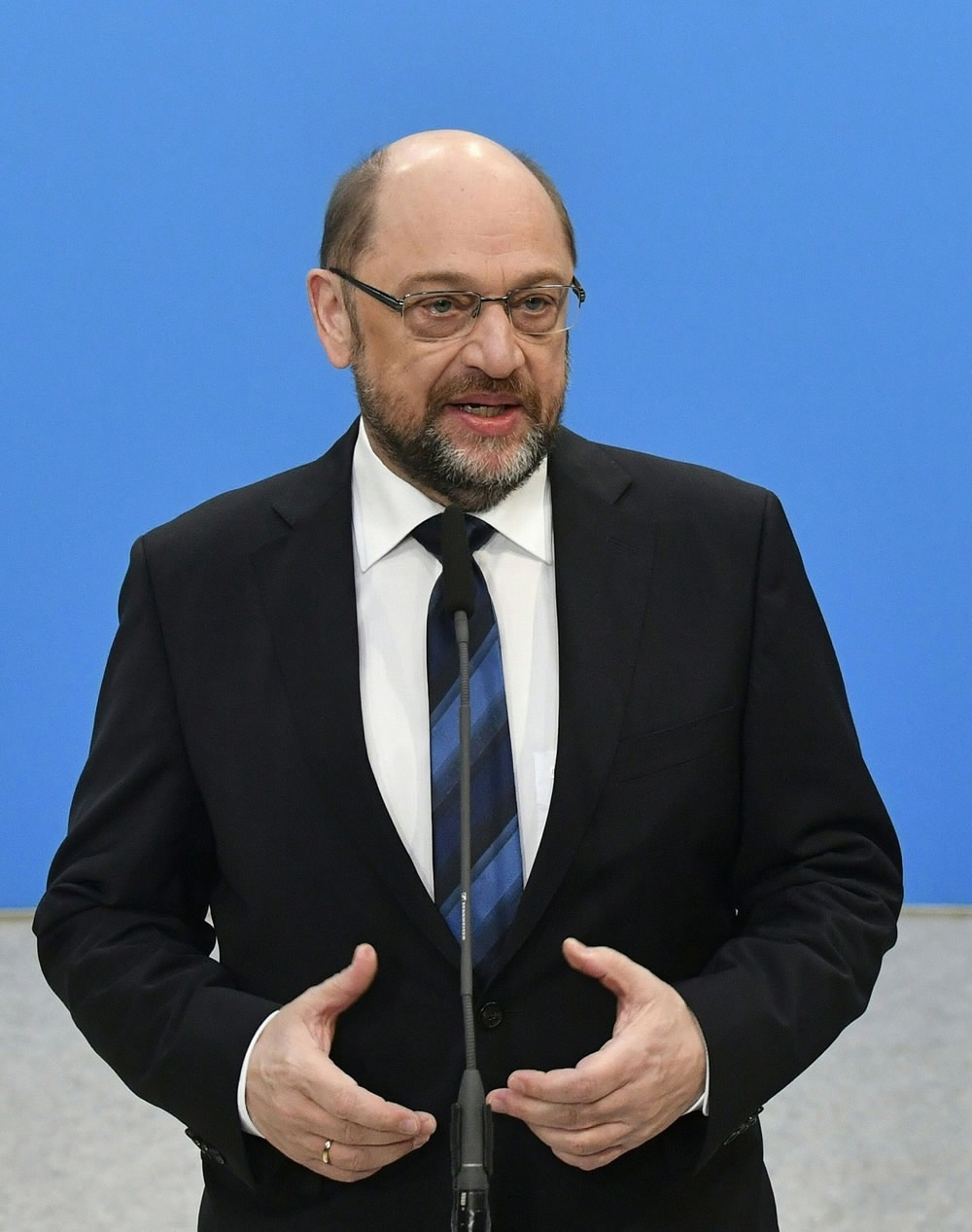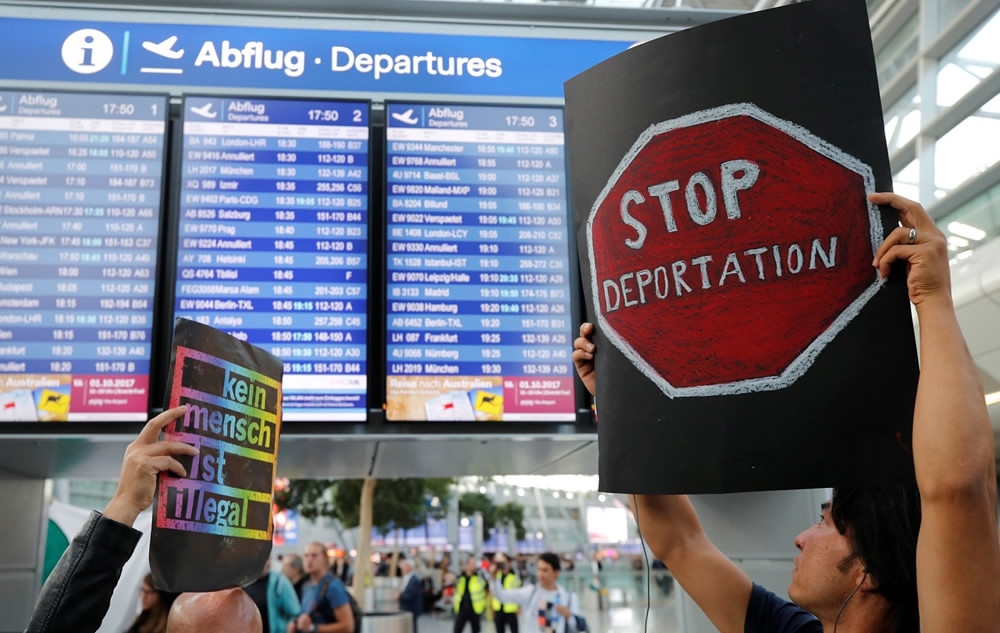
Politics
08:22, 03-Feb-2018
German parties edge closer to coalition but divisions remain
CGTN

German Chancellor Angela Merkel's conservatives and their would-be partners, the Social Democrats (SPD), have made major progress in talks on forming a coalition government but remain at odds on issues like labor rules, a senior SPD member said on Friday.
As he emerged from lengthy talks that Merkel hopes will ultimately secure her fourth term and end political impasse in Europe's largest economy, SPD General Secretary Lars Klingbeil said the parties had taken a "leap forward."
"But we also saw that we have differences on some topics," he said.

German Chancellor Angela Merkel (1st L) of the Christian Democratic Union (CDU) and leader of the Christian Social Union (CSU) Horst Seehofer (C) attend coalition talks in Berlin, Germany, February 2, 2018. /VCG Photo
German Chancellor Angela Merkel (1st L) of the Christian Democratic Union (CDU) and leader of the Christian Social Union (CSU) Horst Seehofer (C) attend coalition talks in Berlin, Germany, February 2, 2018. /VCG Photo
Senior conservative Peter Altmaier said Friday's talks had been good and the parties were optimistic but a "very tough stretch of road" lay ahead.
The parties became embroiled in another dispute over migration on Friday, with some SPD members saying they wanted to revisit January's coalition blueprint that said the parties did not expect annual migration to exceed 220,000 per year because they were annoyed that Merkel's CSU Bavarian allies seemed to be considering this as an upper limit.
But SPD deputy Ralf Stegner later said the parties had reached a deal. In an apparent defeat for the SPD, the wording of that migration prediction remained the same – as pushed for by the CSU, which calls for a migrant cap.

Leader of the German Social Democrats (SPD) Martin Schulz /VCG Photo
Leader of the German Social Democrats (SPD) Martin Schulz /VCG Photo
Stegner said the figure described "expected migration numbers" and beyond that the parties stood by the right to asylum enshrined in Germany's constitution.
He said the SPD had had to make compromises: "We can't make progress on our issues without giving something in return."
But he trumpeted an agreement on a "modern and transparent immigration law" as a success for the migrant-friendly SPD. The parties agreed to encourage skilled migration using criteria such as qualifications, age and language skills.

September 12, 2017: People hold signs as they protest against the German government's decision to deport migrants who were denied asylum, at Duesseldorf Airport, Germany. /VCG Photo
September 12, 2017: People hold signs as they protest against the German government's decision to deport migrants who were denied asylum, at Duesseldorf Airport, Germany. /VCG Photo
The two camps aim to finalize a deal for four more years of a "grand coalition" by the end of the weekend or early next week, some four months after an inconclusive election plunged Germany into unaccustomed political uncertainty.
But Merkel said, upon arriving for talks, that they faced divisions in crucial areas, adding: "We have goodwill to overcome them, but there is still a lot of work ahead for us."
7368km
Source(s): Reuters

SITEMAP
Copyright © 2018 CGTN. Beijing ICP prepared NO.16065310-3
Copyright © 2018 CGTN. Beijing ICP prepared NO.16065310-3